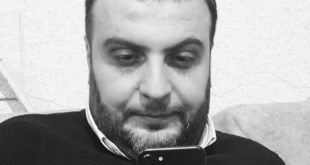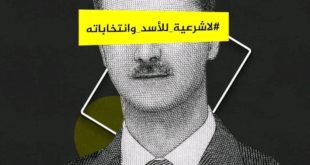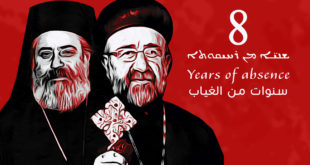Abdul Halim Khaddam, Vice-President
Born in 1932, Mr Khaddam has exercised considerable influence for three decades and is regarded as a leading hardliner.
Khaddam is linked to |
A Baath Party official in the 1960s, he became foreign minister and deputy prime minister in the 1970s.
In 1984 Mr Khaddam was promoted to the vice-presidency, and has worked to assert
He remains fiercely opposed to any loosening of the Baath party’s grip on power.
In a newspaper interview last year, he said that those who suggested changing the regime either did not understand that this would jeopardise the “stability of the state” or “serve the plans of foreign elements and of
Asef Shawkat, head of military intelligence
Asef Shawkat is said to be very close to Bashar al-Assad |
Born in 1950, Gen Shawkat is one of the youngest members of the Syrian leadership.
After studying law and history, he joined the army in the late 1970s.
He rose through the ranks, but his fortunes rose spectacularly in the mid-1990s when he married Hafez al-Assad’s only daughter – despite initial misgivings from within the Assad family on account of the suitor’s humble background.
He was subsequently promoted to the rank of major-general and became the de-facto chief of military intelligence, a title he officially acquired in February 2005.
Gen Shawkat is very close to Bashar al-Assad. The president has come to rely heavily on his brother-in-law, regarded by many as
Farouq al-Shara, Foreign Minister
Shara has helped shape |
Born in 1938, Mr Shara has helped shape Syrian diplomacy for two decades. As foreign minister since 1984, he has been a fierce critic of
During the Iran-Iraq war, he defended
When negotiations broke down, Mr Shara was quoted as saying
The
Bahjat Suleiman, intelligence chief
A general and former of head military intelligence, Mr Suleiman once supported Hafez al-Assad’s brother Rifaat, an army officer who was disgraced after attempting to seize power.
He was an officer in Rifaat’s battalion in the 1980s. But he threw his weight behind Bashar when succession was being discussed, and his support is said to have been crucial.
Mr Suleiman now head of internal security intelligence, and remains one of the president’s most influential aides.
Rami Makhlouf, businessman
A first cousin of Bashar Assad, Rami Makhlouf is arguably the most powerful economic figure in
Now in his mid-30s, he controls the country’s mobile phone network, SyriaTel.
According to a human rights activist, one member of parliament is serving a five-year prison sentence for criticising the mobile phone operator.
Whatever his standing at home, Mr Makhlouf is a key figure. Analysts say no foreign companies can do business in
Kanaan was spy chief before joining the cabinet |
Born in 1942, Mr Kanaan became a close military aide to Assad senior in the early 1970s.
He had a long career at the top of Syrian army intelligence in
Some observers say he was appointed as interior minister in response to a string of security incidents in 2004, including the killing of a Hamas leader in a car bombing in
According to
Hasan al-Turkumani, Defence Minister
Born in 1935, Mr Turkumani joined the army in the 1950s. He fought against
He is also a long-standing senior member of the Baath party. His appointment to replace Mustafa Tlas last year went against speculation that the next defence minister would be a civilian.
Mr Turkumani flatly rejects allegations that
In 2003, he said the
Mustafa Tlas, ex-deputy prime minister
Born in 1932, this career soldier was a close friend of Hafez al-Assad. In 1971, the president made him deputy commander-in-chief of the armed forces and soon afterwards defence minister.
His swift rise was seen as an effort to give the military a central role. It was also viewed as a way of appeasing Syria’s Sunni majority, after Assad gave key jobs to members of his own Allawi community.
With Soviet help, Mr Tlas oversaw the expansion of the Syrian army in the 1970s. In 1984 he helped quell a coup attempt by the president’s brother, Rifaat.
He maintained his influence throughout the 1990s and after Assad’s death. In May 2002, Bashar al-Assad delayed Mr Tlas’ retirement as defence minister by two years. He is no longer deputy prime minister but remains influential and close to the president.
BBC News
 Assyrian Democratic Organization ADO
Assyrian Democratic Organization ADO









